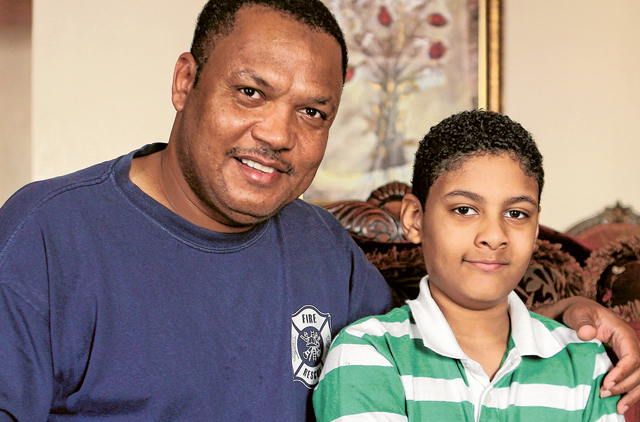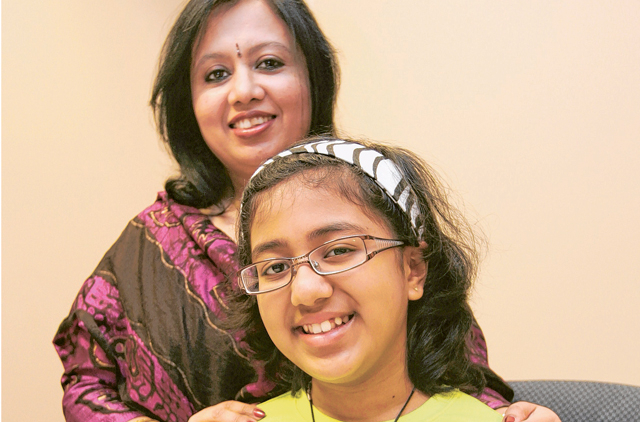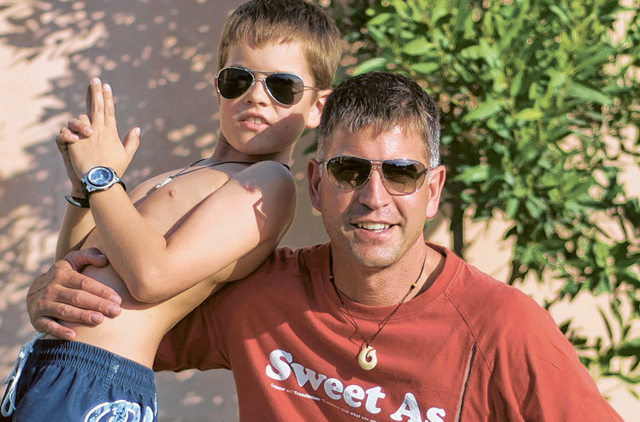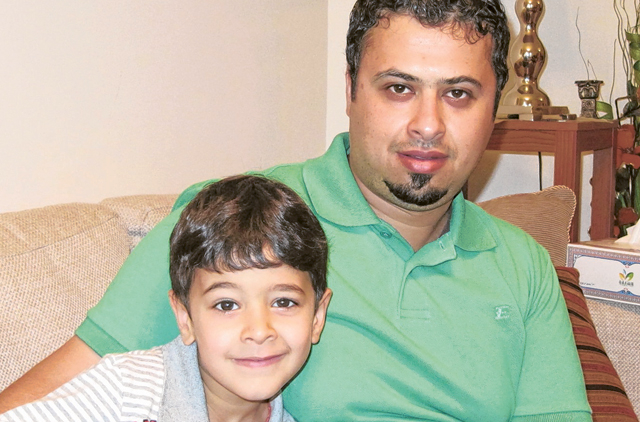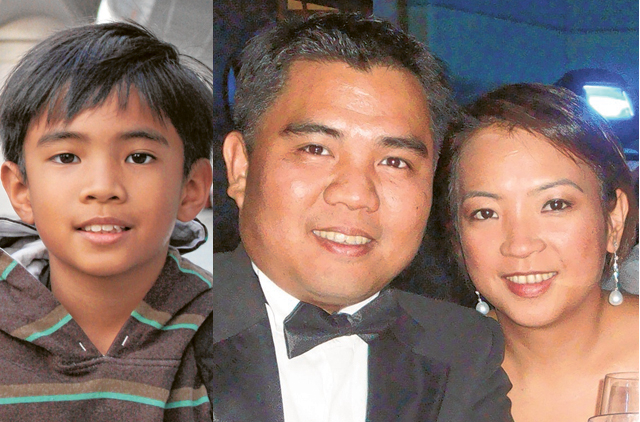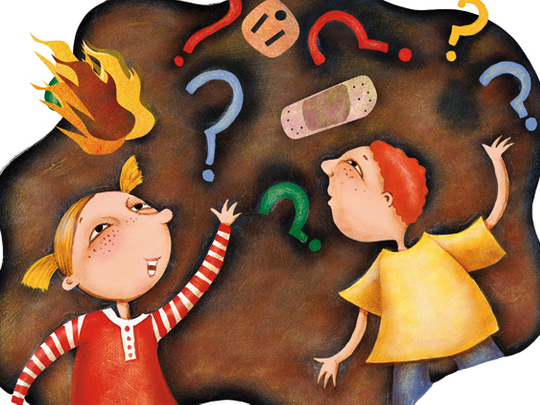
A recent international study showed that children are not well prepared when it comes to emergency situations, be it a fire, an earthquake, a gas leak or getting lost. As tougher economic times mean more families, in which both parents are working, it becomes a bigger concern. The probability of youngsters finding themselves in a crisis situation increases. Gulf News community journalists spoke to children and their parents from a cross-section of society in the UAE to find out how they cope on their own. Are children prepared to handle emergencies? Read on to find out.
Meet the families
|
IRAQI FAMILY
Father: Yasir Al Jaafar, a car salesman
Son: Samer Al Jaafar, a six-year-old Emirate: Sharjah |
|
NEW ZEALAND FAMILY
Father: James Evans, an air traffic controller
Son: Jack Evans, a nine-year-old Emirate: Dubai |
|
FILIPINO FAMILY Son: Diego Vargas, a nine-year-old Emirate: |
|
INDIAN FAMILY
Mother: Swati Basu, a homemaker
Daughter: Kehkashan Basu, 10-year-old Emirate: Dubai |
|
EMIRATI FAMILY
Father: Saif Easa Al Meskiri
Son: Easa Saif, an eight-year-old Emirate: Dubai |
- Dr Lalit Taori, a doctor, who works in the accident and emergency department of Welcare Ambulatory Care Centre, Dubai
- Arvind T. Dhumale, a fire supervisor in Abu Dhabi
- Dr.Gabriel Ionescu, senior consultant and head of Paediatric Surgery division at Tawam Hospital in Al Ain
Scenario 1: Cuts and bruises
IRAQI FAMILY
Parent’s response — He would directly call his mum and start crying.
Parent’s response — He’d come and get one of us (mum or dad).
Parent’s response — He’ll approach his mum first. Even if it’s small cut, he’ll show it to me. If we’re not around, he’ll approach the nearest adult.
Parent’s response — I would expect her to use the first-aid kit and then call the family doctor.
Parent’s response — He is never left unattended and the house help is always with him, but if he is alone he can always ask for help from people around him.
Scenario 2: Electric shock
IRAQI FAMILY
Parent’s response — He would start shouting and crying and move away from it.
Parent’s response — He would come and get one of us if we were around or dial 999.
Parent’s response — He’ll approach his mum.
Parent’s response — She would call the family doctor if I wasn’t around. Otherwise, she’d just shout out my name.
Parent’s response — He has learnt all the vital numbers, including the number for an ambulance.
Scenario 3: Allergic reactions/insect bites
IRAQI FAMILY
Parent’s response — He would either call me or his mother.
Parent’s response — He would call one of us (mum or dad), or 999.
Parent’s response — He’ll call me and show it to me.
Parent’s response — She would use the anti-allergy medication and call me.
Parent’s response — He would call either the emergency number, and even our maid has the number for the ambulance.
Scenario 4: House on fire
Parent’s response — He would leave the house, go down the stairs of our building and call 999.
Parent’s response — He would yell out fire, get down below the smoke, and then run to the exit.
Parent’s response — He would call his mum.
Parent’s response — She would run downstairs following the emergency evacuation plan in our building. She also knows how to use the fire extinguisher.
Parent’s response — I have trained my son and my house help in evacuation techniques as well as how to extinguish a fire. There is a fire extinguisher in our home. I would also expect them to crawl on the floor and try to leave as soon as possible.
- First, do not panic.
- If it’s a minor fire, raise the alarm. If it’s a full-blown one and can’t be tackled, close the door of the room/source and get out quickly.
- Worst-case scenario: Smoke rises so wet a towel and put it over your mouth, lower yourself to the ground and crawl to get to the exit.
- Children must be trained beforehand about escape routes, how to use the fire alarm and which emergency number to call.
Scenario 5: Gas leak
Parent’s response — He would leave the house and call an ambulance.
Parent’s response — He’d call for me and tell me or his mum.
Parent’s response — It is not applicable to us because we are using the electric coooker, since he was three years old, so he doesn’t know what a gas leak is. But I’m sure that he would call my attention or the nearest supervising adult.
Parent’s response — If she were to smell gas, she would open the windows.
- Kids must be taught to identify the smell of leaking gas.
- Do not switch on any electric equipment, do not light a match.
- Exit the house at the earliest and ask for assistance.
- Opening windows should be left to adults — ventilation is only advisable when the source of the leak or fire is isolated, otherwise, when exposed to oxygen, even the smallest fire can spread within seconds.
Scenario 6: Witnessing someone choking
Parent’s response — He would call 999.
Parent’s response — He would try and find somebody to help.
Parent’s response — He will call the attention of either his mum or any adult.
Parent’s response — I would expect her to call the police.
Parent’s response — He should call 999.
Scenario 7: Lost in a public place
IRAQI FAMILY
Parent’s response — He would go to any security guard and ask them to call his mum or me.
Parent’s response — He would find a security guard or someone official and tell them that he’d lost us.
Parent’s response — He would call us on the mobile phone. He memorised my mobile number so he will ask a uniformed adult from a store or restaurant to say that he is lost and he would ask the attendant for a phone and he would call his mum.
Parent’s response — She would find the security or contact the police.
Parent’s response — Firstly, our househelp never leaves him alone, but Dubai is one of the safest places in the world, and if he does get lost, he can always ask for assistance from passersby who can help him.
- Take a deep breath and try not to cry.
- Contact any information centre or a security personnel.
Dr Ionescu — I don’t think many children panic when they get lost. They find things to do, other children to play with and may even follow strangers — now that can be dangerous. Finding a security personnel quickly is important.
Scenario 8: Left in a car for more than 5 minutes
Parent’s response — He would probably sit there, and then bang on the windows after a while if he couldn’t get out and alert some people who were passing by.
Parent’s response — He is supposed to stay in the car, and lock it. And he won’t open the door for a stranger. But if it’s taking a long time, he will call us from his mobile phone. He’s instructed not to open the car for people other than us. But I usually do not leave him for more than five minutes.
Parent’s response — I would expect her to just unlock the car and wait outside.
Parent’s response — He can draw the attention of passersby and has also been trained to break the glass, and while he might get cuts and bruises, as a last resort it is better to break the glass than pass out in the heat.
- The child should open the car window if it is manual.
- He or she should try to honk the horn or hit the door or window to get public attention.
- Loosen clothes and drink water or juice if kept inside the car.
Scenario 9: Earthquake
Parent’s response — He would leave the house immediately.
Parent’s response — He would get under a doorway or get under a table.
FILIPINO FAMILY
Parent’s response — He would go under the table.
INDIAN FAMILY
Parent’s response — She would just run downstairs.
Parent’s response — He should evacuate the building immediately and go to a big open area.
- Crouch with your head between your knees and covered with your hands.
- Choose a safe place like under the table or a couch.
- Try to stay near a wall or a pillar.
When disaster strikes, are your children prepared?
According to Dr Gabriel Ionescu, head of Paediatric Surgery at Tawam Hospital in Al Ain, children’s responses in emergency situations can be “unpredictable, especially during situations involving trauma”. He compared them to another species that is quick to react, but often reckless in its response — chickens.
“Usually, children flee the scene or run straight into trouble, not realising the consequences of their choices. It’s up to their parents to prepare their children and teach them what to do beforehand.”
A recent US Census report found that 19 per cent of the nation’s children, between the ages 5 and 14, were left at home alone regularly. So are they able to cope when they’re on their own?
It is not a far-fetched idea, according to Dr Ionescu. With the spread of literacy and greater exposure to media, children have become more clued in — all they need is a little guidance and communication. As someone who works in the accident and emergency department of Welcare Ambulatory Care Centre, in Dubai, Dr Lalit Taori knows this to be true.
In his experience, he said he often finds that culture has a role to play in children’s behaviour during traumatic moments. Dr Taori said those from the West are often more responsible and informed than those who hail from the East.
“When a small child requires stitches, I have seen parents gently explaining the process — these children tend to be calm and cooperative. But then there are other children who scream and cry because they do not know what to expect and have no assistance from their emotional parents.
"According to Dr Taori, children in the modern age are not being given enough room to become independent. He said: “Parents are often over-indulgent and pamper kids. It’s important for children to learn and experience things for themselves so they can grow. Parents can help by preparing them.”
Have your say
Does your child know what to do in an emergency situation? Have you made an attempt to talk to your child about what to do? What more can be done to ensure children know how to react in these kinds of situations? Tell us by posting a comment below.


